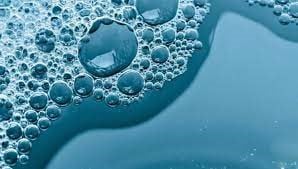How Defoamers Can Save Time and Money in Industrial Production
How Defoamers Can Save Time and Money in Industrial Production
Blog Article
The Function of Defoamers in Enhancing Product Quality and Efficiency
In different manufacturing procedures, the presence of foam can significantly impede product top quality and operational performance. Defoamers act as essential ingredients that reduce this concern, making sure smoother production operations while improving the visual and practical characteristics of the end products (defoamers). Their application covers a multitude of markets, from food and drink to pharmaceuticals, where uniformity and reliability are paramount. Nonetheless, the choice of the ideal defoamer can be crucial to attaining ideal results, raising crucial concerns concerning solution compatibility and efficiency metrics that warrant more exploration.
Comprehending Defoamers
Understanding the role of defoamers is crucial for preserving product high quality throughout different industries. Defoamers are chemical ingredients developed to minimize and protect against the formation of foam in fluid systems, which can adversely impact processes such as blending, filling, and surface stress. Frothing can result in ineffectiveness, product issues, and compromised aesthetic appeal, making defoamers a crucial part in manufacturing procedures.
In commercial applications, defoamers help to boost product consistency and security. The effective use of defoamers not just makes sure smoother production procedures however also adds to exceptional item efficiency.
Moreover, the choice and formulation of a defoamer have to straighten with specific application needs, such as compatibility with other components, effectiveness under varying temperature and pH conditions, and possible governing restrictions. Inevitably, recognizing defoamers' features and their relevance in various formulas is essential for enhancing manufacturing and guaranteeing the finest final product.
Kinds Of Defoamers
Defoamers can be categorized right into several kinds based on their make-up and mechanism of action. The key kinds consist of silicone-based, non-silicone natural, and inorganic defoamers.
Silicone-based defoamers are among the most reliable, largely because of their capacity to spread promptly on the liquid surface and interfere with foam development. Their special chemical framework enables superior stability, making them suitable for high-temperature applications and atmospheres with differing pH levels.
Non-silicone organic defoamers, usually made up of fatty acids or all-natural oils, are valued for their biodegradability and reduced toxicity. These are usually used in food and drink applications where security and environmental impact are critical.
Not natural defoamers, that include compounds like talc or calcium carbonate, act by boosting the density of the fluid, thus lowering foam security. They are usually made use of in industrial processes where compatibility with various other products is not a worry.
Each sort of defoamer has distinct benefits and constraints, permitting customized options relying on the certain lathering issues experienced in various applications. Comprehending these differences is crucial for optimizing efficiency and attaining wanted item quality.
Applications Throughout Industries
Many markets take advantage of defoamers to improve product top quality and operational performance. In the food and drink market, defoamers are vital in processes such as developing and dairy products production to stop foam formation, which can cause ineffectiveness and item incongruity. By regulating foam, producers can ensure much better return and a much more uniform item.
In the pharmaceutical industry, defoamers play an essential role in the solution of fluid medicines, where too much foam can restrain blending and precise dosing. Their use helps preserve the honesty of the formulations and promotes smoother production procedures.
The paint and coverings sector also relies upon defoamers to enhance the efficiency of products during application. By decreasing foam, these additives make sure a smoother coating and enhance the aesthetic top qualities of the end product.

Advantages of Making Use Of Defoamers
While the application of defoamers differs throughout sectors, their advantages continually boost item quality and procedure performance. One substantial benefit is the decrease of foam development throughout manufacturing processes, which can otherwise cause manufacturing hold-ups and disparities in item high quality. By minimizing foam, defoamers allow a smoother circulation of materials, promoting more efficient procedures and minimizing the probability of tools breakdowns.
Furthermore, making use of defoamers can improve the look and appearance of end products. In sectors such as finishes, paints, and food handling, extreme foam can compromise the aesthetic appearances and general quality, while the ideal defoamer application guarantees an uniform surface and desirable features. Defoamers can add to cost financial savings by decreasing waste throughout production and enhancing the usage of raw materials.

Choosing the Right Defoamer
Picking the appropriate defoamer is essential for enhancing production processes and ensuring product top quality. The choice of defoamer affects not just the performance of foam control yet additionally the total efficiency features of the end product. Factors to consider include the type of application, the chemistry of the formulation, and the ecological conditions under which the product will certainly be used.
Different markets might need certain defoamer types, such as silicone-based, natural, or polymeric defoamers. Recognizing the compatibility top article of the defoamer with the main ingredients is vital to prevent negative reactions that can endanger product honesty. In addition, the defoamer's efficiency in various temperature levels and pH levels must be reviewed to make sure consistent efficiency.
Testing the defoamer in small applications can provide useful insights right into its efficiency and suitability. Factor to consider of regulatory compliance, specifically in food, pharmaceuticals, and cosmetics, is extremely important in selecting a defoamer. Eventually, a comprehensive analysis of these elements will certainly lead to the choice of a defoamer that not just controls foam successfully yet also improves the top quality and performance of the end product.
Verdict

In conclusion, defoamers are necessary ingredients that significantly enhance product high quality and efficiency throughout numerous sectors. By effectively decreasing foam formation, these agents not only improve functional performance however additionally add to the visual and functional integrity of products. The tactical selection and application of defoamers result in cost savings, enhanced resource use, and increased customer complete satisfaction. In general, the significance of defoamers in industrial navigate here processes can not be overstated, as they play a vital role in attaining top quality and regular end results.
Lathering can lead to ineffectiveness, product flaws, and endangered aesthetic appeal, making defoamers a crucial part in producing operations.

Report this page